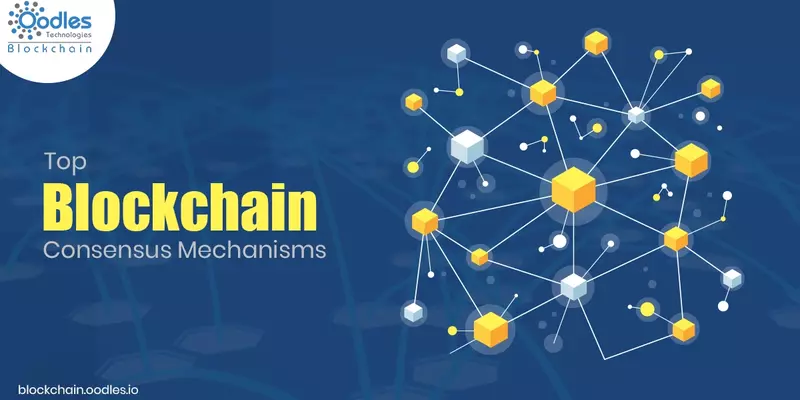-
For anyone to effectively embrace blockchain technology, it's a must for them to fathom how the system works with other aspects. It's necessary to comprehend that a blockchain has various elements that can be more than just a process-enhancing technology. Blockchain consensus algorithms or protocols are one such aspect that many blockchain developers have tried to explore.
These mechanisms are the engine for blockchain business solutions since they provide a way to ensure transaction authenticity. Without having a proper understanding of blockchain consensus algorithms, it's almost impossible to implement a new service model on the blockchain. This article gives you a brief about these algorithms and their different types available in 2019.
Understanding Blockchain Consensus Algorithms
Blockchain consensus mechanisms work according to a set of pre-determined guidelines that enable communication among network nodes to reach a consensus. As we know that blockchain has no central authority to oversee it or to guide its operations. So, there's a need for a consensus method to prevent data manipulation or tempering on distributed databases.
In blockchain app development, blockchain app developers must know that blockchain operates as a decentralized network with no database admin. If anyone wants to enter the system, they need to become a node by creating a server and joining the blockchain. Further, members within the network will need to agree to make a decision.
Types of Consensus Protocols
Comprehending different types of consensus mechanisms is necessary for enterprises to develop blockchain solutions. Additionally, they need to know their working and implementation within a distributed system.
Here is a list of the types of blockchain consensus algorithms available in 2019:
PoW (Proof-of-Work)
Proof-of-Work is one of the most popular of all consensus protocols available in the crypto world. It's the first-ever method adopted as a consensus protocol for blockchain, specifically Bitcoin.
The consensus works by enabling the miners to add new blocks of information (transactions) to the blockchain. However, only those miners who have found the hash first can add new blocks. It's basically like incentivizing miners for their job.
The miners need to have a high hash rate to calculate the hash, thereby, making the mining a highly computation-intensive process.
PoS (Proof-of-Stake)
Contrary to the consensus process of PoW, proof-of-stake asks participants to put their cryptocurrencies at stake. Instead of miners, PoS utilizes validators whose work is to handle the stake of coins. A higher number of crypto at stake means that more participants would be able to add new blocks to the blockchain.
Unlike PoW, PoS doesn't incentivize network members for staking. Here, validators get the transaction fees as their rewards. So, when it comes to token-based investments, PoS is the most widely accepted consensus mechanism by many blockchain platforms. These platforms mainly deal with crowd-sale funding because of their low energy-intensive nature.
DPoS (Delegated Proof-of-Stake)
In this blockchain consensus algorithm, delegates (witnesses) handle and perform various operations for maintaining the network, including timestamping transactions and validating signatures.
Here, it operates by enabling users to select delegates by voting. In comparison to PoS, DPoS aims to provide users with more ownership and influence within the network. The protocol allows them to cast their votes to in or out of whoever they choose.
Though many blockchain enthusiasts consider DPoS as a semi-decentralized network, it's well-known for its scalability feature. When we compare PoS and PoW, DPoS offers an improved version for blockchain mobile app development companies in terms of scalability. Also, it enables users to vote on tweaking or changing the parameter of the network.
PoA (Proof-of-Authority)
Like DPoS and PoS, PoA empowers the validators - a set of pre-determined authorities - to generate new blocks of information and manage the blockchain. It's another blockchain consensus algorithm that possesses some centralized elements due to its pre-determined trust system.
Here, blockchain developers are required to have valid and verified accounts so that they can get their transactions validated. Although PoA is highly centralized, it's also quite fast and scalable.
What Oodles Blockchain Offers Here
We are a blockchain development company, offering its blockchain development services globally. Being early adopters of blockchain technology, we have gained expertise in the blockchain development landscape. Thus, we excel in utilizing these blockchain consensus algorithms so that we can deliver the best blockchain solutions.
If you wish to utilize blockchain solutions, then contact our blockchain developers to start your project.

Our Offices
INDIA
Emaar Digital Greens, Sector 61,
Gurugram, Haryana
122011.
Welldone Tech Park,
Sector 48, Sohna road,
Gurugram, Haryana
122018.














